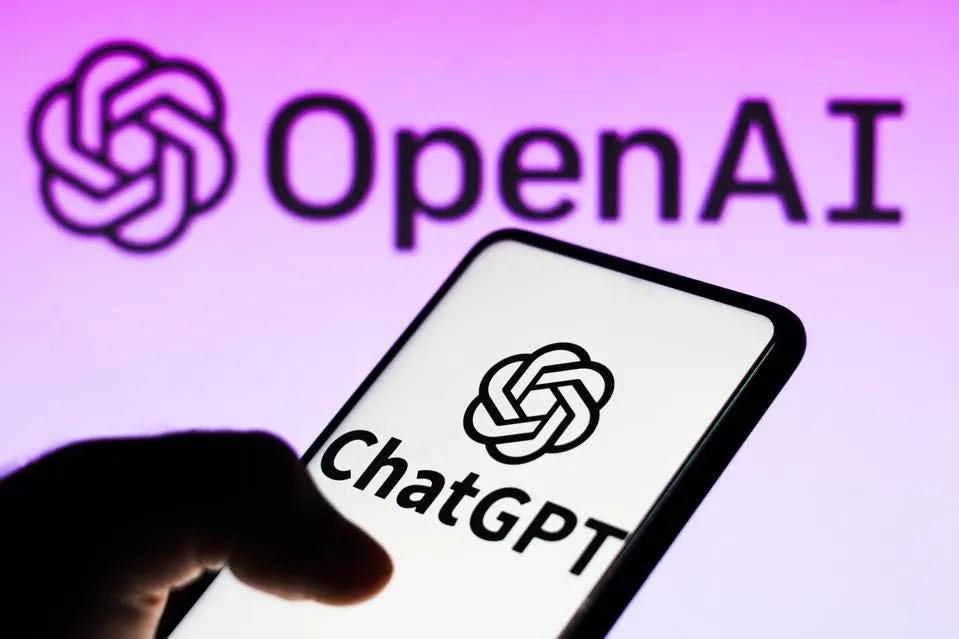The AI Ouroboros: The Dangerous Cycle of AI Self-Consumption.
Like the mythical serpent devouring its own tail, generative AI systems face an ironic threat - the danger of consuming their own synthetic creations in a destructive loop.
Generative AI systems like ChatGPT have become a cornerstone in our digital landscape in less than a year. Their ubiquity spans classrooms, entertainment, political campaigns, journalism, and even the content farms shaping our online experiences. This technology is already so deeply integrated that it permeates the very fabric of the open web, such as in search engines. While it has replaced traditional roles, sparking concerns over job losses, it has also paved the way for novel AI-centered careers. Clearly, generative AI's influence is here to stay, both virtually and tangibly.
However, with the meteoric rise of these systems, there's a surge in synthetic content they produce. This content isn't born out of thin air; it's a product of extensive training on vast amounts of human-created data sourced from the web. But there's a potential glitch in this matrix. As these AI systems generate synthetic content, this content finds its way back into the internet, and consequently, into the datasets that train future AI models. This cyclical self-consumption is akin to "data inbreeding," leading to what researchers term as the "MAD" phenomenon - Model Autophagy Disorder. In layman's terms, the AI starts to consume and degrade itself.
This week alone witnessed two technological behemoths unveil revolutionary advances that integrate conversational AI into mainstream usage. OpenAI enhanced ChatGPT by introducing voice interaction, thus offering users a more personalized experience reminiscent of the AI companion portrayed in the movie "Her."
In parallel, Meta launched a series of celebrity-voiced chatbots, redefining the boundaries of fan-celebrity interactions. These innovations symbolize a transformative phase in synthetic companionship. But while they offer the tantalizing promise of always-available digital companionship, especially for the marginalized, they also walk the fine line between genuine human connections and sterile simulations.
The landscape of our social networks is undergoing a tectonic shift. What once thrived on human-human interactions is evolving into a hybrid ecosystem with human and synthetic relationships. The integration of such conversational agents has the potential to redefine the social web – making it either more personal or more impersonal. Yet, the perils accompanying this shift cannot be overlooked. Conversational AI agents, while enhancing user engagement, are also leading producers of synthetic content. If unchecked, this could amplify the MAD phenomena, causing models to collapse under their own weight.
The path forward demands prudence. Companies must ensure that they rigorously evaluate and curate the synthetic content that feeds into training models. It's essential to watermark such content to distinguish it and prevent its unchecked loop back into the training datasets. Additionally, users need to be mindful of the digital footprints they leave behind, as today's outputs might form the foundation for tomorrow's AI training.
The looming shadow of the Ouroboros – the mythic serpent consuming its own tail – serves as a timely reminder. While it signifies the pitfalls of unchecked growth and self-consumption, its circular form also symbolizes rejuvenation and rebirth. The crossroads we're at present us with a clear choice: Let AI systems consume themselves to oblivion or steer them towards a future where they uplift humanity.
This juncture, teeming with both opportunities and challenges, underscores the essence of our responsibility. The decisions we make now will shape the narrative of AI and its role in our society. Through foresight, compassion, and collective wisdom, we can create a future that's neither a synthetic dystopian nor utopian but profoundly human. The stakes are monumental, and the mission even more so. The choice is ours, and the time to act is now.





